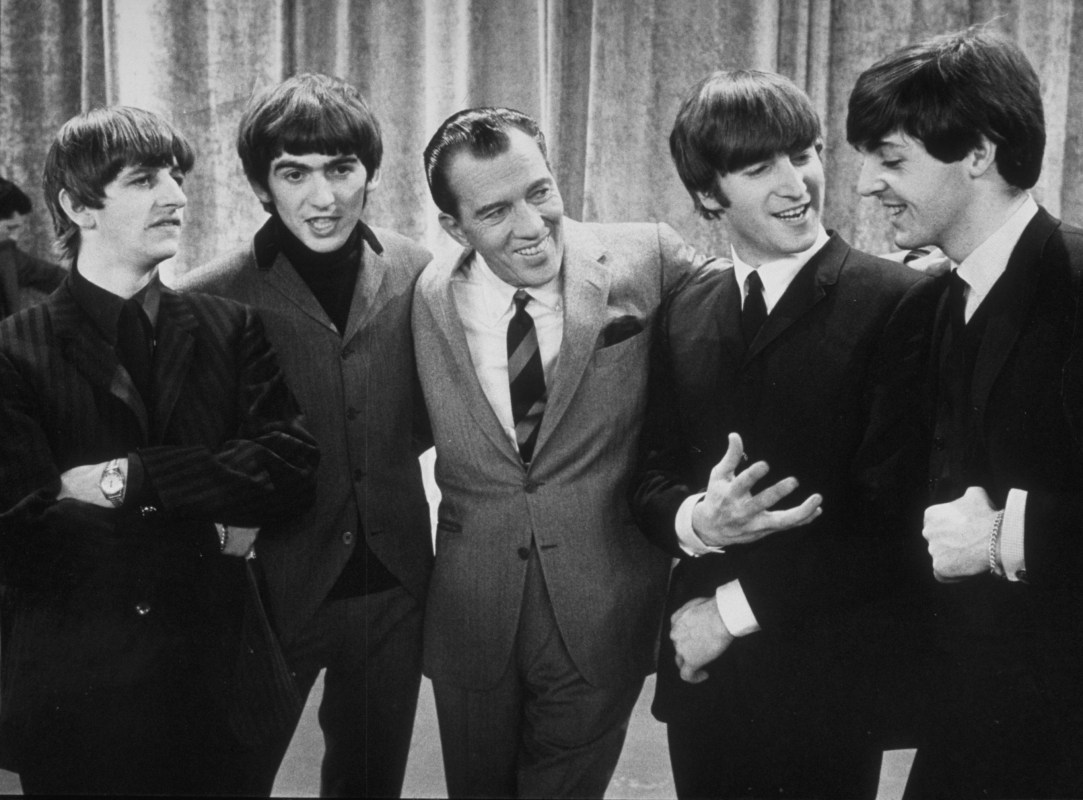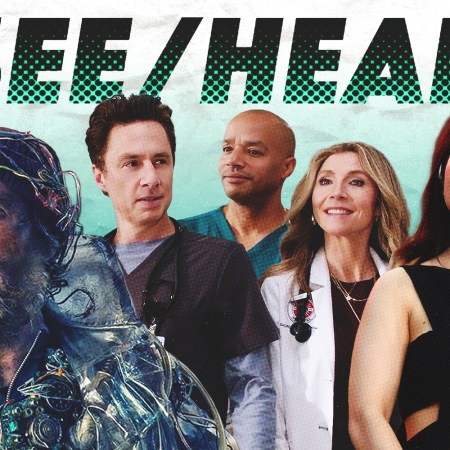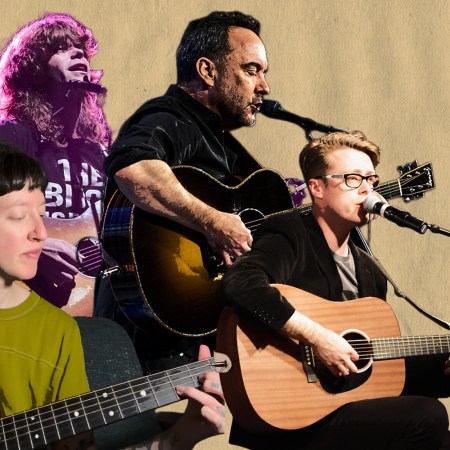There is so very much that is beautiful about the Beatles. Not just their monumental music, but also their impact on our lives as listeners, voyagers, friends of the world they created. I find that the Beatles bring such pleasure, and are such a constant in our journey of cultural discovery, that they not only defy analysis, they defy thought. They are so much a part of us that every bar of their music is like hearing our mother’s heartbeat. They are not just a pop group, but also the diary, full of spice and color, for each day in each stage of our lives.
True, in the past I have written critically of the Beatles. I was not necessarily critical of their music, only the impact of their ubiquity. But any criticism is just spit in the ocean, and ignores the magic we feel in the presence of both the Beatles music and the idea of Beatles.
For many of us – for most of us – the Beatles were the gateway drug not only to rock music, but also to a whole lifestyle that held guitars, smiled down from posters, smiled up from the well-thumbed horizons of record store racks.
Fifty-five years ago this week, the Beatles made their first appearance on The Ed Sullivan Show. That Sunday evening, they split our nation’s cultural life into a definitive before and after.
When we watch the shiny monochrome clips of the Sullivan show appearance on February 9, 1964, we see a raw, flailing, stomping, grinning rock’n’roll band, plinking, snarling, thrashing and thumping with a kind of fervor that still seems revolutionary, virile, and feral. After all, the Beatles are only 24 months removed from the saloons of Hamburg, and it shows. We also cannot help but note a few small, strange things: Paul’s bass does not cut through the mix at all; John’s vocals are mixed far too low; a great deal of the high-end frequency of the tiny, square mix is eaten up by Ringo’s ride cymbal; George is so very on top of his game that his Hank Marvin-esque/Chet Atkins-esque leads seem more powerful than they did on any Beatles record up until that time; and on and on.
But this sort of hindsight, these observations that are both under the microscope and through the wrong end of the telescope do not matter at all. We are not interested in the affect of Beatles, but the effect of Beatles.
The Beatles are the most deified act in the history of pop, yet, this deification generally omits one vital factor: Causes and conditions.
It is easy to believe that whatever the Beatles are, they always have been. It is easy to believe that they were the atom that always waited to be smashed, the ether that always awaited being split by the blue fizz of radio, the earth that would inevitably by lassoed by the immediacy and constancy of the internet.
But that is not true. Causes and conditions, kiddies, causes and conditions. On this anniversary, I would like to take a moment to celebrate these causes and conditions.
Anniversaries, after all, tell us very little. And traditional rock histories tell us even less. Traditional rock histories tend to focus on heroes, villains, and easily described battles and victories. But rock and pop history, like “real” history, is not remotely simple. The roots of great trees are vastly important, yet very often hidden completely under the ground.
The Beatles, with their “sudden” emergence alongside Ed Sullivan five-and-a-halfs ago tomorrow, presented America with the illusion of a Virgin Birth.
Nothing could be further from the truth.
Despite the ubiquity of the Beatles, very few Americans have an understanding of the unique social and cultural causes and conditions that made both their phenomenon and their artistry possible. Without certain seismic developments on the English sociocultural landscape in the 1950s and early 1960s it is very unlikely that Beatlemania would ever have taken place, or any of the Beatles’ epochal music would have ever been heard.
Six non-musical important factors – far from a comprehensive survey — tell the tale. They help explain that the Beatles were, very, very much the product of a time and place. England made the Beatles, even more than the Beatles made England. In no particular order:
Imagine England in 1950, just a dozen years before Beatlemania.
It is 1950. The English lower and middle classes know their place. Less than a decade prior to the emergence of the Beatles, it was inconceivable that an artist (in any genre) from the North of England might attain massive mainstream respect and commercial success throughout the country. It was nearly as unlikely that a major artistic force could emerge from the English working class. Class and geographical prejudice, in place for nearly a millennium, still entirely held sway in the years immediately following the Second World War. In the early 1950s, the media establishment and tastemakers in England considered the North an artless morass of uneducated, working class people who had little impact on the cultural arbiters in London and the South of England. All media channels maintained this unfortunate perception. This was roughly analogous to the attitude a New Yorker in the 1950s might have had towards West Virginia or Arkansas. Likewise, in the deeply class-entrenched mid-century English society, there was a near universal belief that the British working class could produce little culture or art that was worthy of serious critical examination.
Circa 1950 – even as late as 1955 — it wasn’t just unthinkable that a group of artists could emerge from the working class in the North of England, accrue respect, and achieve a massive economic and cultural impact; it was more or less impossible.
But that changed…
In the 1950s, Kitchen Sink Realism begins to puncture holes in the traditional ways of portraying the English working class.
Film, theatre, and literature in the 1950s – what came to be known as Kitchen Sink Realism — gave working class England a unique and intelligent voice. As the decade progressed, the public image of the English working class and the residents of the North of England began to change dramatically, in a way that made acceptance of the Beatles, working class Northerners, possible. This was especially evident in the work of film directors and playwrights like John Osbourne, Lindsay Anderson and Tony Richardson, and authors like Colin MacInnes.
The North gets its voice: Manchester’s Granada Television goes on the air.
In 1956, the very first English television station outside of London went on the air (prior to 1956, all English television originated in London). Granada Television was not only a pioneer in British independent television (prior to the mid-1950s, the state-run BBC controlled all television programming), but more pertinently to the future-life of the Beatles, it brought a distinctly Northern perspective on culture and the news. For the first time, millions of television viewers in the United Kingdom were exposed to a cultural viewpoint that was not limited to the Capital in London. Granada took its mission very seriously, and determined, in virtually every program it aired, to reflect a distinctly Northern attitude and a positive reflection of the diversity of culture in the North. The appearance of Granada was a profound portent of the Beatles emergence half a decade later.
This culminated in 1960 with the debut of Granada’s Coronation Street, a nighttime soap opera set in working class Manchester, which became one of the most popular shows in British television history.
Granada and shows like Coronation Street profoundly changed the attitude of the nation regarding the intellectual and commercial potential of the North of England.
Comedy shaped the 1960s: The Goons give young England it’s own hip voice.
In America, Ginsberg, Kerouac, and the Beats (not to mention Norman Mailer, Salinger, or Tom Wolfe) set the tone for the 1960s by expanding the way language could be used and creating a private and anti-establishment lexicon for young America. In much the same way, in England the Goons (absurdist, Joycean sketch comedians who had a wildly popular weekly radio show on the BBC from 1951 to 1960) and their surrealistic use of language and wordplay profoundly influenced the Beatles and an entire generation of young English men and women. The Goons created an environment where rabid, unfettered creativity – not to mention a near-constant sense of Dada-ist absurdity and punning – could be used to both power sketch comedy and also create a “private” language for the youth of post war England. John Lennon was very open about the influence the Goons had on him (Lennon’s lyrics and public persona are intensely indebted to the Goons) and he spoke about it frequently. Yet this debt still remains largely unknown to most American fans of the Beatles.
Speaking of Comedy…Four young men Lounge About in Front of the Camera.
In 1963 and 1964, the Beatles stood in front of the cameras for the black and white shots that were to define their profile forever. They were cocky, slouching, confident, louche, and vaguely uncomfortable in their new duds, utterly adorable but somehow rebellious. Yet two years before these era-defining shots, we find a remarkable, game-changing comedy team photographed in virtually the exact same poses, with the same half-grins on their face, also simultaneously mocking the establishment and welcoming it with open arms. These were the four young writer/actors of Beyond the Fringe, whose rebellious but user-friendly satire took the West End (and later Broadway) by storm in the years immediately before the Beatles. The visual precedent created by Beyond the Fringe, not to mention their spirit of user-friendly rebellion, both softened the landing for the Beatles and influenced the visual profile of the band.
Last but far from least: Suez, and the End of Mandatory Military Service.
On December 31, 1960, military conscription ended in the United Kingdom. Following the political humiliation in the Suez in 1958 (which underlined the loss of British colonial and overseas political power) and the destabilization of faith in government due to the extended rationing following the Second World War, the abandonment of conscription served to further underline a loss of trust in the “establishment” in the United Kingdom. Just as significantly, the door was now open for both productive cynicism and for young people to live a life free of the blind faith in authority, enforced deprivation, and fear of military service that had haunted young people since the Second World War. Think how differently the Beatles’ story would have been written if their crucial years of gestation had been altered and abridged by military service. Free of that shadow of the draft, the era of The Teenager could now come into full fruition…just in time for The Beatles.
By 1962, the Beatles were a reality, made possible by a nearly endless sequence of causes and conditions, some of which I have outlined above.
And on February 9, 1964, they changed everything about being young in America.
This article appeared in an InsideHook newsletter. Sign up for free to get more on travel, wellness, style, drinking, and culture.

























